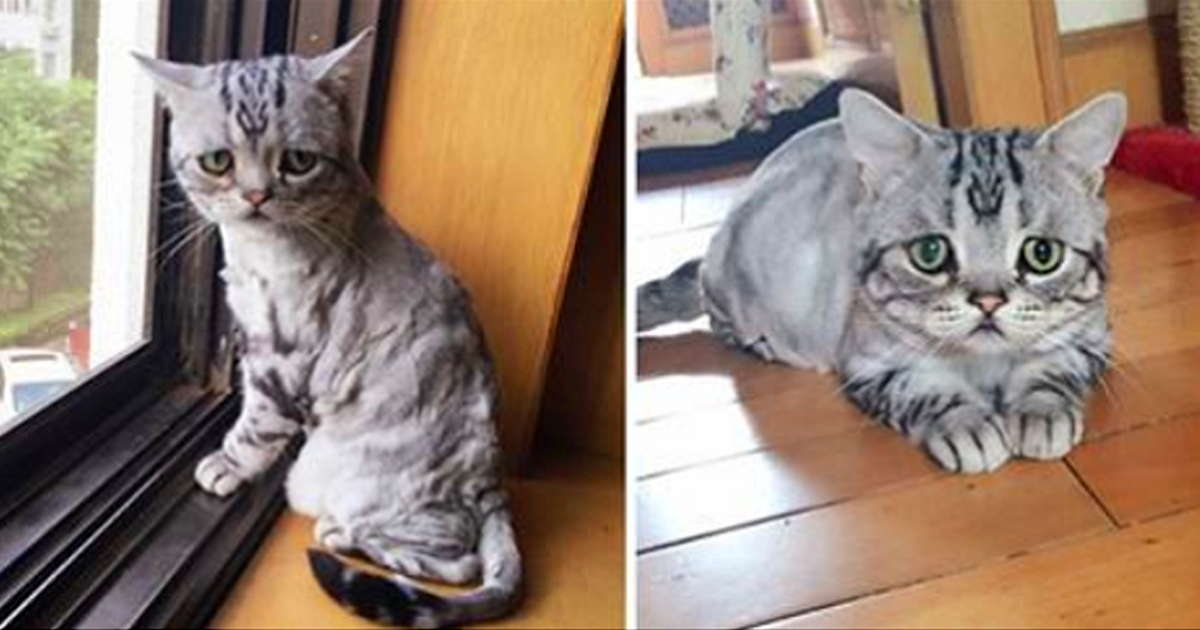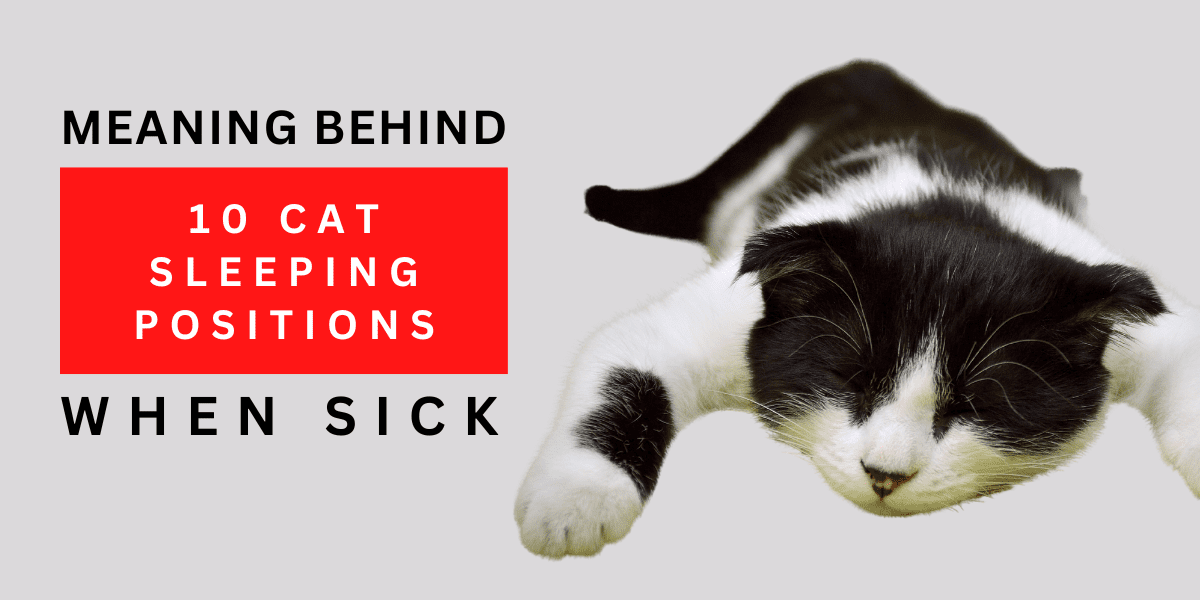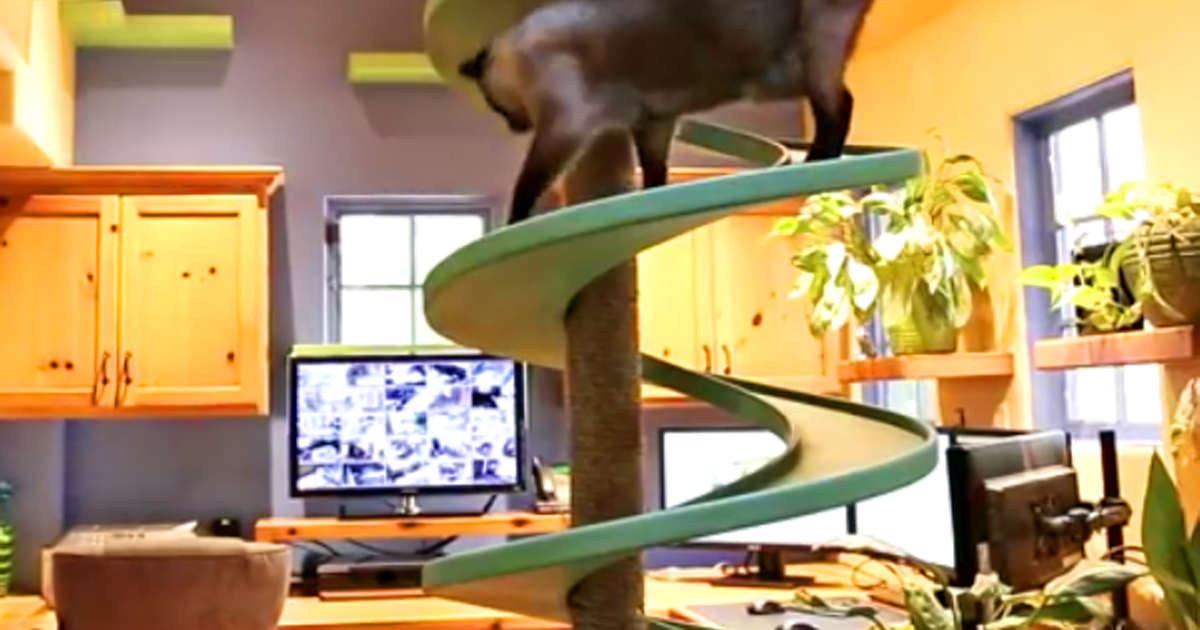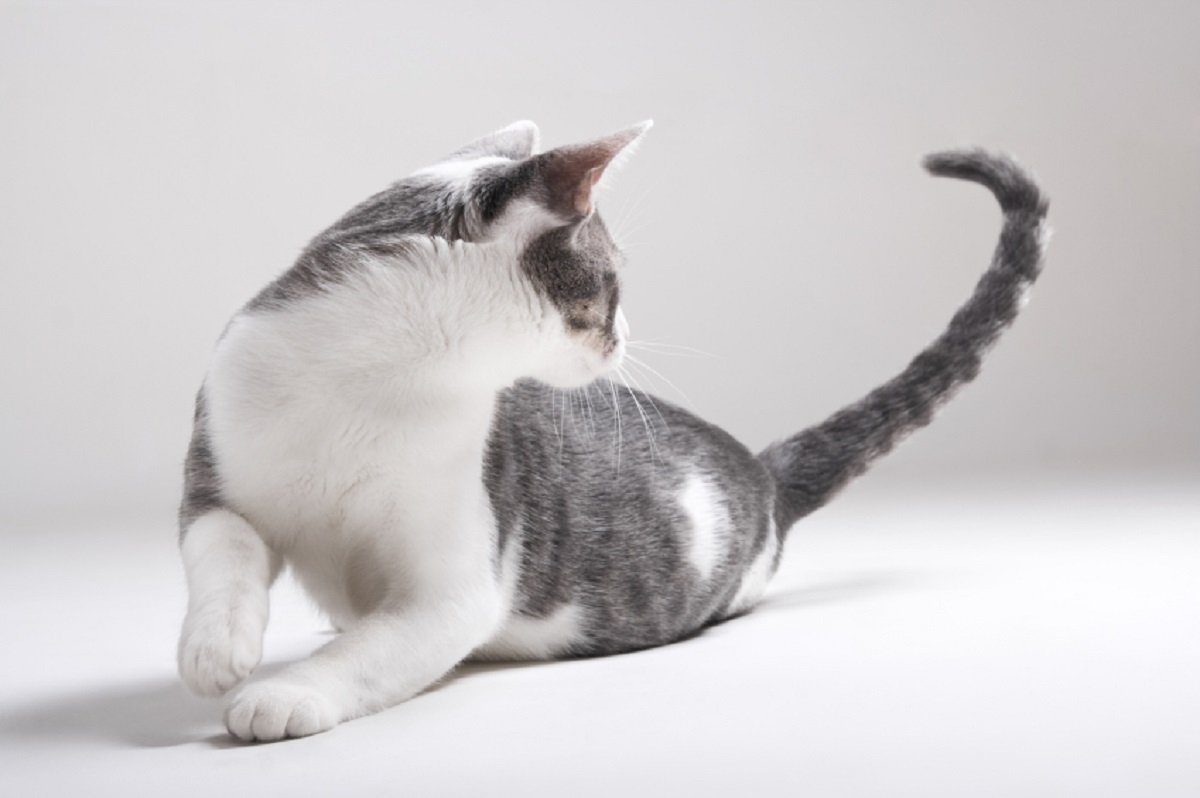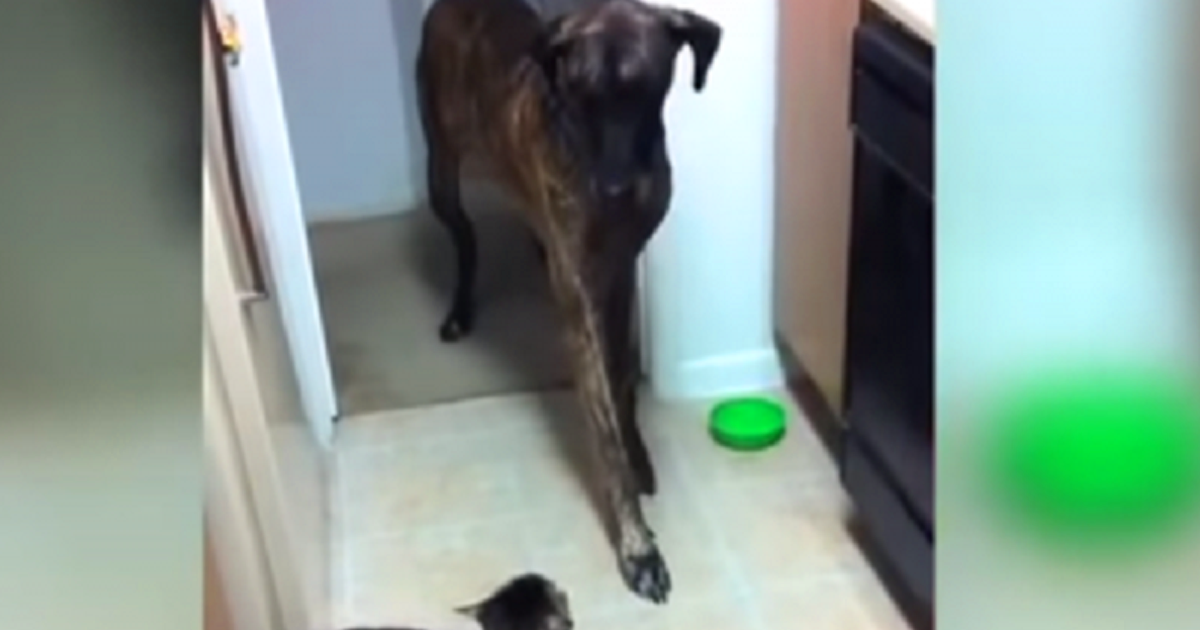Your cat peeing on your bed doesn’t make you feel any better even if it happens to the best cat parents in the world. When your cat uses the bathroom outside of his litter box, it’s bad enough. But when you climb onto your bed and discover a damp area, it’s downright humiliating.
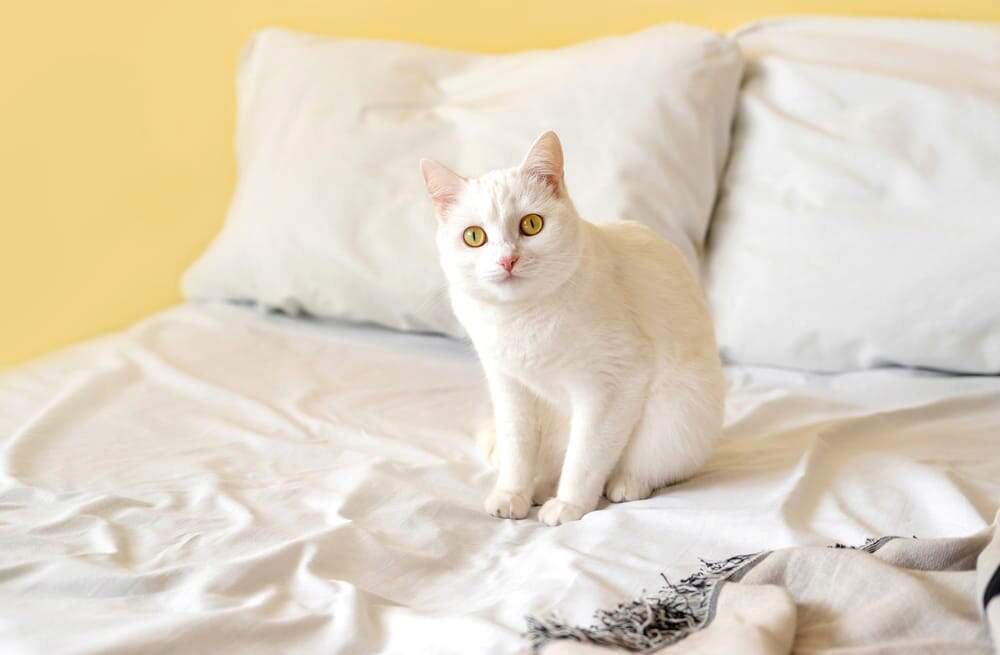
There are three experts who can help you figure out why your cat is peeing on your bed and what you can do to stop him. They are Dr. Meghan Carlton, an emergency animal veterinarian in Portland, Oregon; K.C. Theisen, a former Humane Society of the United States director of pet care issues; and Dr. Michelle Burch, a veterinarian with Paramount Pet Health.
What’s the deal with my cat peeing on my bed?
Cats peeing on the bed can happen for a variety of reasons (or anywhere outside their litter box). This may be due to an underlying medical problem that might be life-threatening for cats. Cats pee on the bed because their requirements aren’t being addressed, but this isn’t always the case.
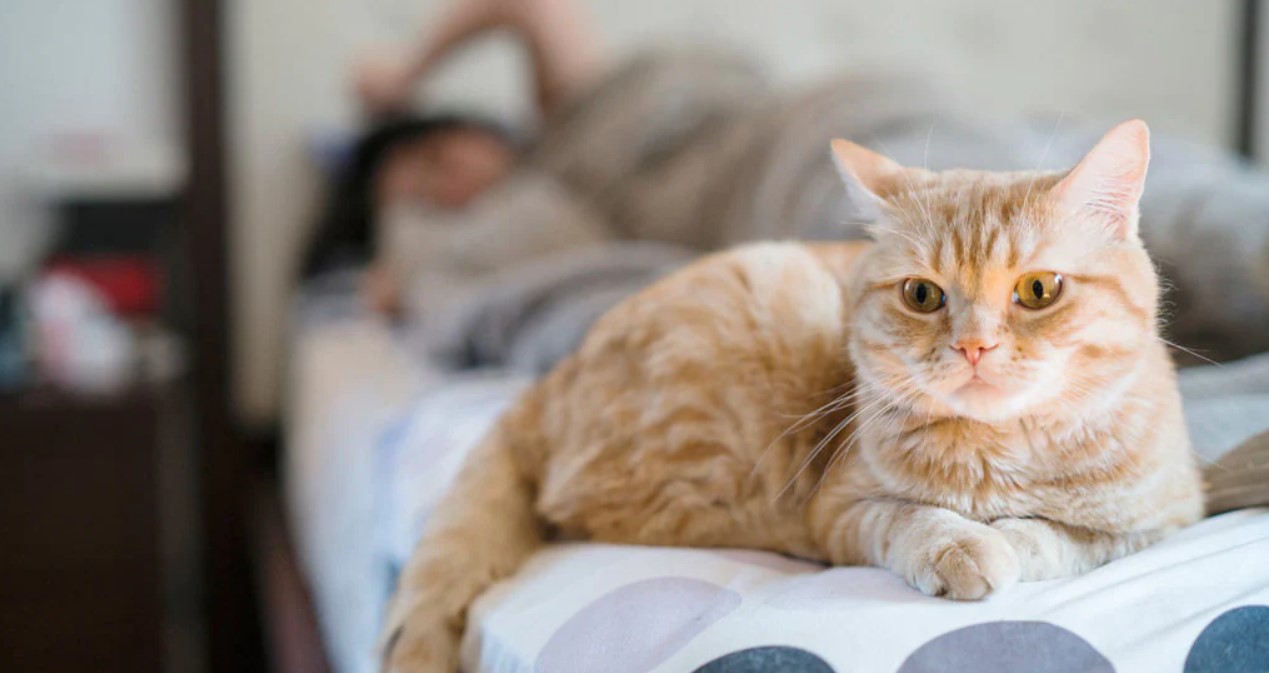
He explained that cats have three basic requirements: safety, security and stimulation. “They are safe because they are not intimidated or harassed and have quick access to fresh food, water and shelter. Their safety means that they are able to escape unwanted attention, have access to high hiding places, and have a predictable daily schedule. Cats’ natural instinct to be predators is reflected in their penchant for chasing and ‘hunting’ their housemates’ toys. A bored or unable-to-express cat may act out improperly. ”
“As long as you take care of these needs, unpleasant habits are likely to go away, according to Theisen’s statement. This means that you can help your cat feel more like himself again if you can identify the need that isn’t being met for him.
Problems with health
If your cat suddenly starts peeing on your bed, the first thing you’ll want to do is check with your veterinarian to rule out any medical issues.
There are a number of possible medical reasons why your cat is peeing on your bed.
-Kidney illness
-Diabetes
-Infection of the urinary tract
You should call your veterinarian immediately for an emergency urinary obstruction if you notice your cat straining to urinate, feeling unwell or hurting when urinating or attempting to urinate and not passing urine,” Dr. Carlton added.
It’s time to dig deeper into your cat’s strange behavior if you’ve already ruled out medical conditions like urinary tract infections or diabetes.
Change of habit
Changing a cat’s schedule can lead to improper evictions because cats are creatures of habit. He may require some time to acclimatize to the new environment if you just moved, had a kid, got a new dog or cat, or changed your personal routine. Predictability and structure are essential to a cat’s sense of security.
It’s possible that your cat is peeing on the bed because he isn’t being aroused. Since intact cats (particularly males) are more likely to mark or spray urine, Dr. Carlton recommended having him spayed or neutered.
Now is the time to schedule an appointment with your veterinarian to get your cat neutered or spayed if it hasn’t already been done. (Taking your cat to the vet to fix her problem offers health benefits as well, so the journey is well worth it.)
Because of the litter box’s position, he dislikes it
When it comes to using the litter box, cats are just like us. If he has to pee in a noisy or crowded environment, he may become irritated. A noisy washing machine or equipment that goes on and off at random, such as a furnace, should be avoided.
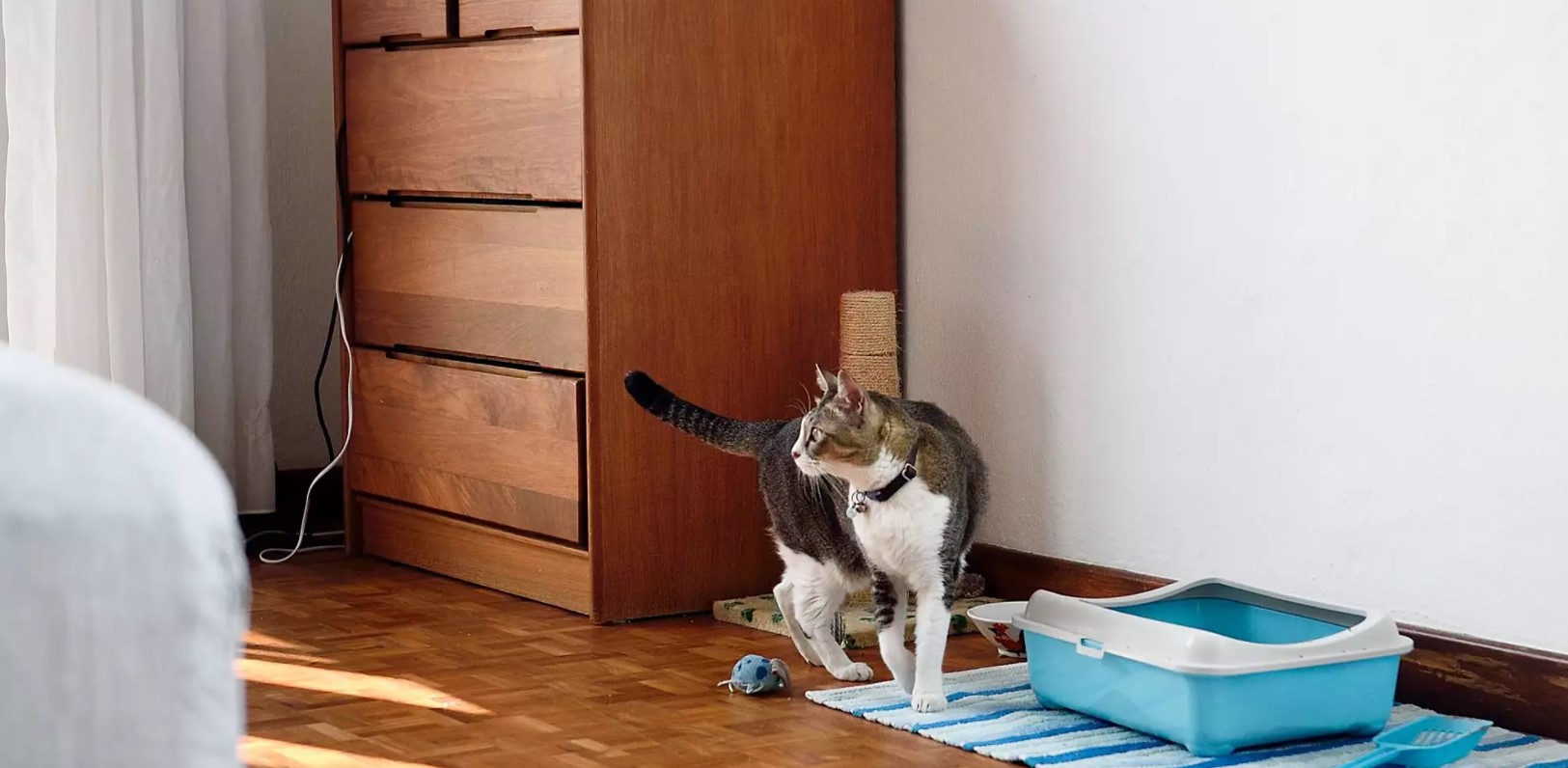
It’s important to keep in mind that your pet will need a place with adequate lighting and space in case he is disturbed by another creature.
He requires a second litter box.
Some cats prefer to pee in one litter box and dump in a different one. It’s not always easy to share a litter box with multiple cats if you have more than one cat in your home. Dr. Burch suggests following the “number of cats plus one” rule.
He dislikes the litter box or litter that he uses.
Cat litter boxes can trap scents, so make sure they don’t impede your pet in any way. Also, make sure they don’t constrain his movement. It’s common for cats to become frustrated when they have to pee in a litter box that is too tiny.
When it comes to their cat litter, some cats are particularly fussy, and if it isn’t soft enough for them, they’ll look elsewhere.
Do not declaw your cat if you have adopted one that was already declawed. If this is the case, rough litter will be painful to your cat’s paws.
How to prevent your cat from urinating on your mattress
Stopping your cat from urinating on your bed or in other non-litter-boxed areas will require a few things. Patience. This will take time, but if you stick with it, your cat will be a litter box pro in no time.
Make sure that your cat is getting enough exercise, and don’t neglect it. Cats suffering from anxiety should be given adequate exercise every day. When a cat is bored or has too much energy, it is more likely to become anxious and stressed, according to Dr. Burch. As a preventative measure, Dr. Burch advises that cats be exercised for at least an hour each day. You can make an indoor agility course or use lures like cat wheels and wand toys to get your cat moving.
Use the proper litter and litter box. Ideally, you’ll want your cat to see his litter box as the most lovely spot in your home. Do your best to make sure it’s full of trash he enjoys, as well as a peaceful location. You can try putting two different litters adjacent to each other to determine which one your dog prefers.
The litter box should be kept clean. Doctor Burch said that the litter box should be cleaned at least once or twice every day because cats may not use the restroom or defecate in a dirty one.
Make sure your bedding is sparkling clean. Cats pee where they smell pee, so make sure to wash your bedding every time your cat uses the bathroom in the same place.
Make the places where he gets into trouble unappealing. Make your bed an unpleasant place for him to urinate until he gets used to using his litter box. When you’re not sleeping, you can cover it with a shower curtain or other non-absorbent material.
Make your bed a new symbol for yourself. Make your cat see your bed differently if he’s mistaking it for his bathroom. Begin by playing with him and offering him goodies on it so that he learns to identify it with fun and food.
Relaxation aids can be helpful. If your cat’s incontinence isn’t due to an underlying medical condition, you can use relaxing products to assist ease their nervousness.
Bach Remedy Rescue, an anxiety and stress reliever that received our Paw of Approval, is a product Dr. Burch recommends for cat relaxation. A combination of five flowers in an alcohol-free solution, “Rescue Remedy Pet,” Dr. Burch explained. Before veterinary appointments, fireworks, thunderstorms, or guests in the house,” “It has been demonstrated to lessen tension in cats”
Be patient; it will all work out in the end. It can take up to a month for a cat to become routinely housebroken.
How to remove cat urine from a mattress
Once a cat has urinated on your bed, it’s critical to remove the stains immediately. Let me show you how.
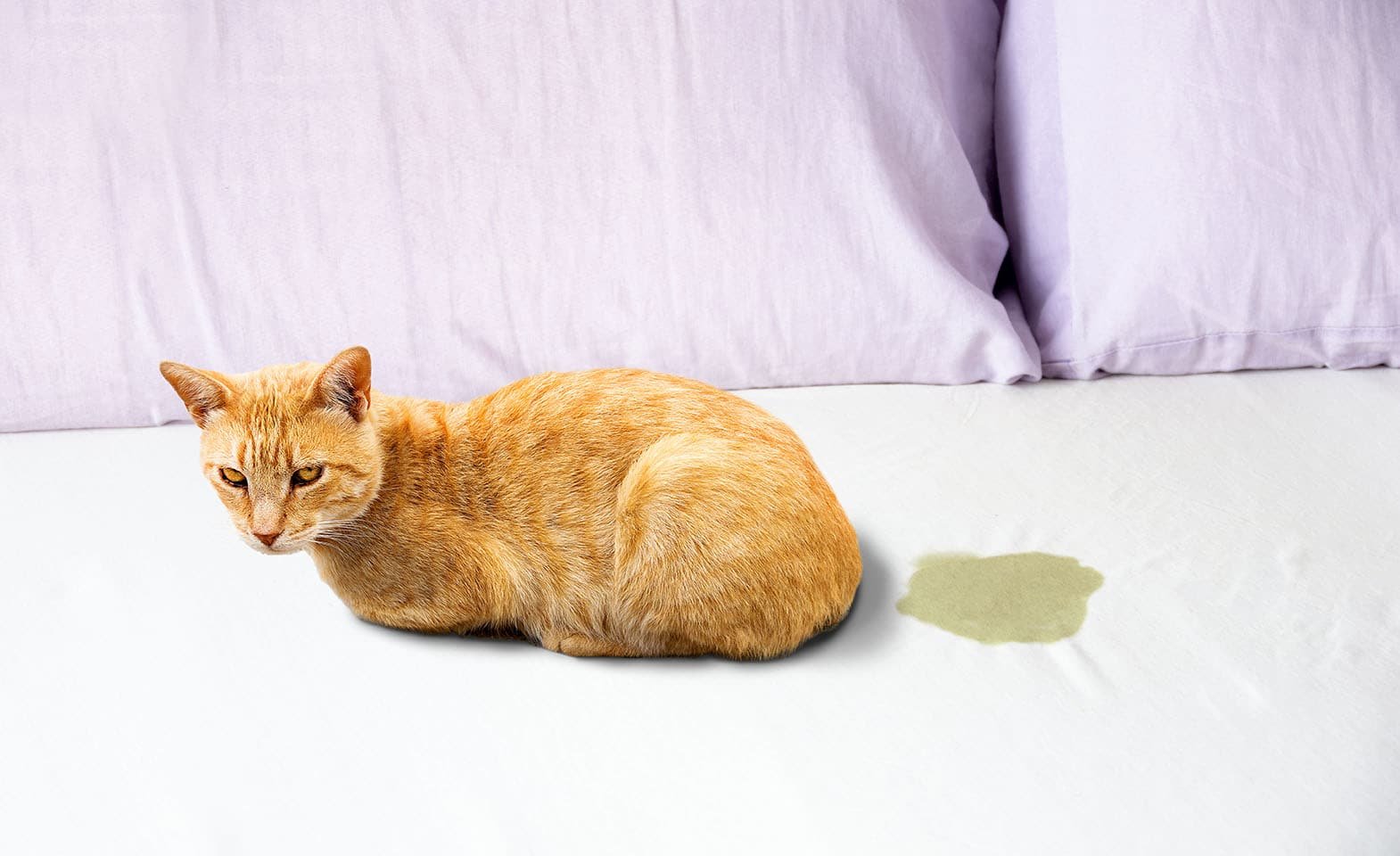
Step 1: Remove any excess urine from the area where your cat urinated by blotting it with a towel. Dr. Burch advised against massaging the affected area because it could disseminate the urine to a greater area.
Step 2: Use a vinegar-and-water solution to disinfect the area. Dr. Burch explained that vinegar, which is acidic, will neutralize the scent because odors are typically alkaline.
Step 3: In order to eliminate extra moisture, let the vinegar mixture remain for 5–10 minutes before blotting with a towel.
Step 4: Use an enzymatic cleanser in step four. In order to get rid of the scent, especially for your pet’s nose, Dr. Burch suggests using an enzymatic cleanser sprayed on the region.
If you know someone who might like this, please click “Share”!

